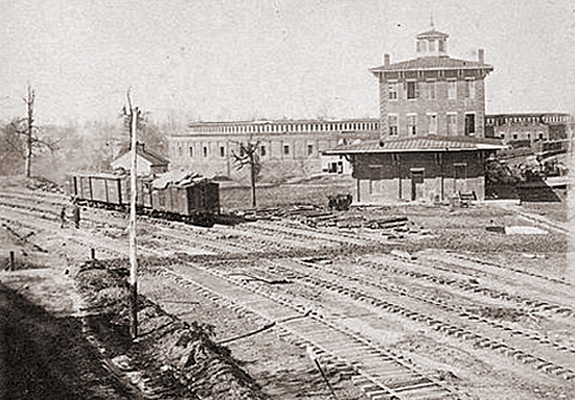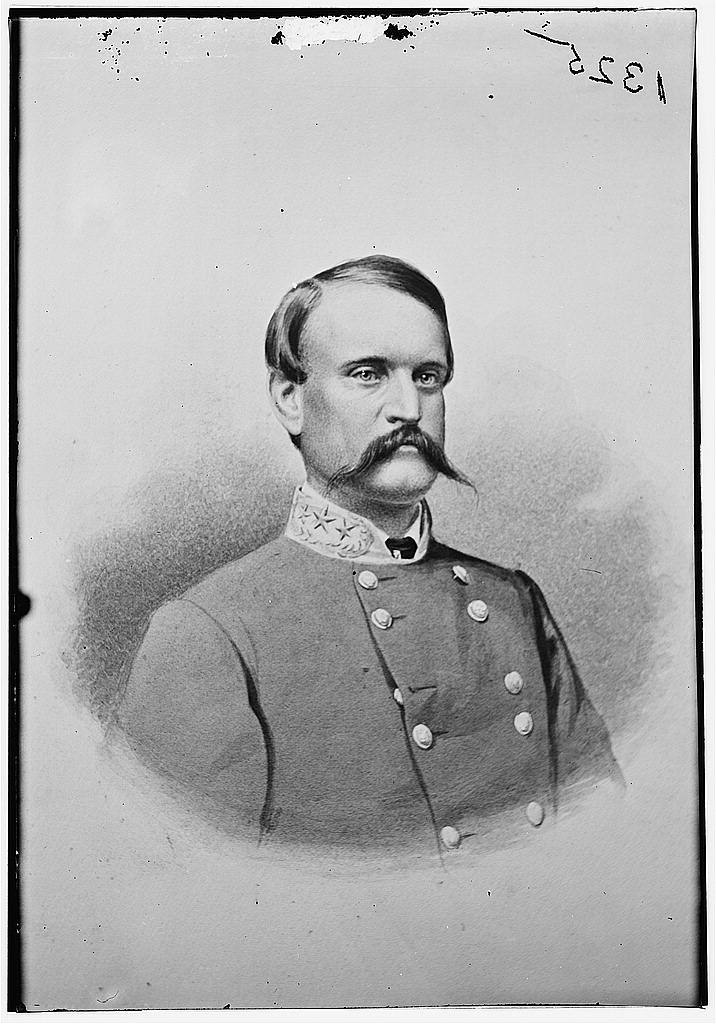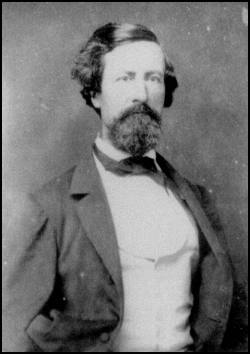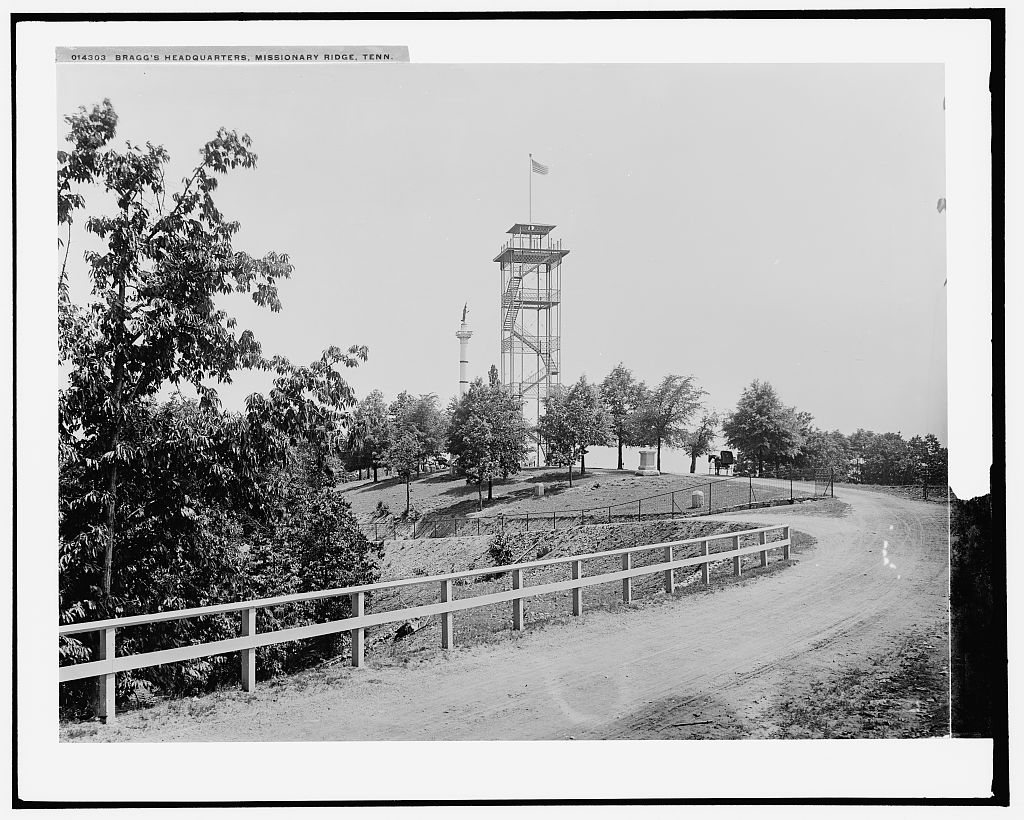Longstreet Goes West, part five: Davis Hurries West

President Jefferson Davis departed Richmond on the morning of October 6, headed to Atlanta. James Chesnut’s urgent appeal had borne fruit; Davis boarded and early morning train, passing through Petersburg by 8:30 a.m. He made short speeches at stops along the way, at Weldon and Wilson, North Carolina. He was accompanied two aides, William Preston Johnston (son of Albert Sidney Johnston, his godfather and namesake, William Preston, was one of those who signed the petition against Bragg) and G. W. C. Lee. Davis also brought with him Lieut. Gen. John C. Pemberton, the man who surrendered Vicksburg. Davis hadn’t lost faith in Pemberton, and hoped to find that officer a command in Bragg’s army.

Davis reached Atlanta on October 8. There he met with Polk. He also probably had a chance to read a follow-up letter written by Polk on October 6th, which he either received while en route or when he arrived in Atlanta. Polk reiterated all the main points of his quarrel with Bragg; the failed orders, Hill’s failings, and Bragg’s own inadequacies. Davis attempted to reassure Polk that any pending charges would come to naught, and also tried to convince Polk to return to the Army with him. Polk refused. On the subject of Bragg, Polk was especially harsh. As he stated in his October 6 letter: “No Sir, General Bragg did not know what had happened. He let us down as usual and allowed the fruits of this great but sanguinary victory to pass from him by the most criminal incapacity, for there are positions in which weakness is wickedness.”
On October 9, Davis rode the Western & Atlantic rails northward to the Army of Tennessee. According to the newspapers, Generals Longstreet and Breckinridge rode with him, having ridden the train south to meet him the day before.

Certainly the anti-Bragg men were hustling to get their licks in.
After all this personal discussion, it is hard to imagine how Jefferson Davis could be so deeply out of touch concerning the depth of animosity that now divided Bragg and most of his senior commanders. But out of touch he was. A rude awakening awaited.
That evening, Davis met privately with Bragg. Not all the details of this discussion were preserved, but two facts stand out. First, Bragg offered to resign, which Davis refused. Davis probably pled Polk’s case again; and Bragg, unwilling to back down on that issue, equally probably offered to step aside – perhaps a gamble on Bragg’s part, but if so, a calculated risk. It was unlikely that Davis, having sustained Bragg previously, would dump him after Chickamauga. Second, Davis offered up John C. Pemberton in Polk’s place.

If any more evidence were needed of Davis’s obliviousness to the mood of the army, this was surely it. Though Bragg averred that Pemberton was “as true and gallant as any man in our service,” he tactfully informed Davis that no division in the army would accept the man who surrendered Vicksburg as their commander. It fell to William Mackall, the next day, to inform a forlorn Pemberton that he was not wanted.
That session concluded, Davis next chaired a group meeting between the army commander and his four corps commanders – Longstreet, Hill, Simon B. Buckner, and Benjamin F. Cheatham (acting in Polk’s stead.) What ensued must have been mortifying. Davis asked each man, in Bragg’s presence, what they thought of the army’s commander, and future course of operations. In his memoir, Longstreet later recalled that he was so embarrassed that he tried to duck the question; but Davis insisted.
With Longstreet leading off, each man expressed dissatisfaction. Hill, who had been sitting in a corner trying to look “inconspicuous,” came last. According to Longstreet, everyone agreed that Bragg “could be of greater service elsewhere than at the head of the Army of Tennessee.” Davis listened carefully, but made no indication of whether or not he agreed.
For a day or so, uncertainly prevailed. Buckner told Longstreet that he thought Bragg was on the way out. Conversely, Mackall thought that Bragg seemed buoyed; “evidently [he] thinks he has the Prest. On his side.”
The next day, Davis toured the Confederate lines, giving speeches, and holding more private discussions. One of those sessions was with Longstreet. In his 1896 memoir, Longstreet advanced the controversial claim that Davis offered him Bragg’s job, but that he declined. This claim, unsupported by any other source, was almost certainly either a case of faulty memory or of outright ego-padding, for by the time he and Longstreet met, Davis had already decided he would sustain Bragg, not replace him. Then, in a passage more likely to be accurate, Longstreet asked once again for Joe Johnston to come take command.

If the Army of Tennessee could be combined with the troops in Alabama and Mississippi, Longstreet reasoned, all under Johnston’s direction; “I said that under him I could cheerfully work in any position.”
Davis now seemed angered. Now it was Longstreet who misread his audience. Davis and Johnston were semi-publicly feuding over who was responsible for Vicksburg, and with Pemberton in tow, Davis was clearly siding against Johnston. Did Longstreet, a regular correspondent of Johnston’s, not know this?
In any case, Davis seemed so offended that Longstreet next offered to resign (lots of that going around in October, 1863) or transfer to the Trans-Mississippi. Davis rejected both suggestions.
On October 12, Davis ended the suspense. Bragg was sustained. In what was clearly a face-saving move for all involved, Polk would be transferred to Mississippi, while William J. Hardee would return to the army in his place. The charges against Polk and Hindman would be dropped. Once again Davis displayed a sense of naiveté when he confided that he hoped Hardee could be the man to heal the breach between Bragg and his senior generals; a sentiment probably no one else outside of Richmond shared.
D. H. Hill was also shown the door. On October 15, Hill received orders sending him to Richmond. Bragg charged that Hill ‘weakens the morale and military tone of his command.” Hill, outraged, asked for a court-martial, or at least a full accounting of why he was being relieved. He never got either.
Other changes followed. Buckner was not dismissed, but he was reduced to divisional command. Cheatham’s old division of Tennessee troops was shuffled, breaking up what Bragg viewed as an anti-Bragg power block within the army.
Longstreet would remain, but he and Bragg would have as little to do with each other going forward as possible.
Dave:
Another great post.
Our great nation owes a debt of gratitude to Jefferson Davis for keeping Bragg as commander of the Army of Tennessee for so long. Too bad the Confederate president fired him after the Battle of Chattanooga.
W. T. Sherman’s Atlanta campaign would have been much easier, if Bragg had still commanded the Rebel army.
Bragg was the only Confederate general in the West who would fight. I definitely think Brag would have attacked in the mountains without retreating so rapidly toward Atlanta. I don’t think anyone could have changed the course of the war in the west by 1864, but I think Bragg would have inflicted more casualties on Sherman and possibly delayed capture of Atlanta until after the elections.
Bill:
What-ifs and maybes are fun to speculate about.
My theory is that Bragg would have had no more success in attacking Sherman than Hood did. Remember, Sherman had George Thomas as commander of his largest corps and Old Slow Trot was a rock.
Rather than impeding Sherman, a more aggressive opponent would have eased the Union’s army path to Atlanta. Most of Sherman’s turning movements had one goal: to entice Johnston into attacking Union troops. Joe Johnston didn’t cooperate; Hood did. And Hood’s three failed assaults late in the campaign cost the Army of Tennessee dearly, contributing handsomely to Atlanta’s eventual fall.
Davis trying to get a command for Pemberton should be considered a textbook case of “tone-deafness.”
The terrain of North Georgia required Sherman to take risks. He had to divide his army in order to move against Johnston. While Johnston talked about striking some portion of Sherman’s army while it was exposed in this fashion, Johnston never really did anything about it. I think Bragg would have tried mightily to accomplish that task, which would mean a larger battle in North Georgia.
That said, this is the strategy Bragg attempted repeatedly in the days before Chickamauga – and look how well that went. McLemore’s Cove is the textbook example.
So I am reluctant to speculate overly much on what would have happened had Bragg not been replaced. I am willing, however, to be pretty critical of Johnston’s unpreparedness in May, 1864. I am unimpressed by his efforts.
I guess what I was trying to say is that Bragg was more proactive while Johnston was reactive, like you said. But the Army of Tennessee was such a mess.
The what-ifs are one of the things that make CW study more interesting.
Bill and Dave:
This excellent discussion brings to mind a larger issue: the wisdom of major offensive campaigns by Southern commanders.
R.E. Lee was the only Rebel commander who consistently had success with offensives. And even the redoubtable Lee failed in his two most ambitious offensives – Antietam and Gettysburg. Lee was finally forced into perpetual defense by three years of heavy casualties the South could ill afford and by finally facing a commander, Ulysses S. Grant, whose iron will matched (and might even have surpassed) Lee’s.
There’s an argument to be made that Joe Johnston’s aversion to the offensive might actually have been the best overall strategy for the South.
Ah, the CW’s what-ifs and maybes.
Johnston would have defended Atlanta to the bitter end—from his lines around Macon, or maybe Tallahassee. 😉